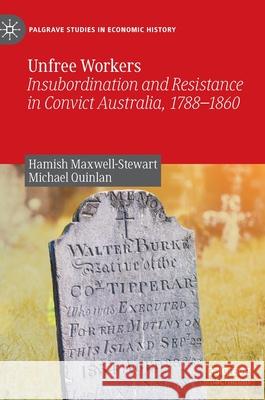Unfree Workers: Insubordination and Resistance in Convict Australia, 1788-1860 » książka
topmenu
Unfree Workers: Insubordination and Resistance in Convict Australia, 1788-1860
ISBN-13: 9789811675577 / Angielski / Twarda / 2022 / 368 str.
Unfree Workers: Insubordination and Resistance in Convict Australia, 1788-1860
ISBN-13: 9789811675577 / Angielski / Twarda / 2022 / 368 str.
cena 442,79
(netto: 421,70 VAT: 5%)
Najniższa cena z 30 dni: 424,07
(netto: 421,70 VAT: 5%)
Najniższa cena z 30 dni: 424,07
Termin realizacji zamówienia:
ok. 22 dni roboczych.
ok. 22 dni roboczych.
Darmowa dostawa!
Kategorie:
Kategorie BISAC:
Wydawca:
Springer Verlag, Singapore
Seria wydawnicza:
Język:
Angielski
ISBN-13:
9789811675577
Rok wydania:
2022
Ilość stron:
368
Waga:
0.59 kg
Wymiary:
21.01 x 14.81 x 2.06
Oprawa:
Twarda
Wolumenów:
01
Dodatkowe informacje:
Wydanie ilustrowane











